Showing 71–80 of 384 results
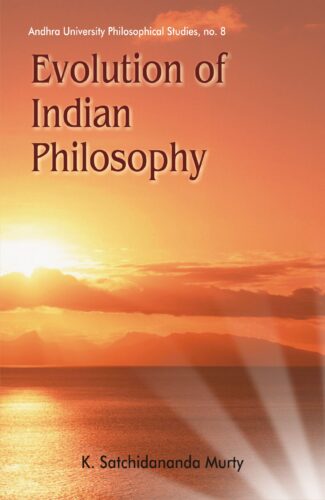
This book focuses on the evolution of philosophy in India with reference to socio-political and economic conditions, through which one can learn that life and thought are invariably interconnected with polity and persons, economy and environment. This book is unique in the sense that it contains a review in the conclusion; and the philosophical heritage has been evaluated in its introduction
In the pattern of Bertrand Russells History of Western Philosophy, this book focuses on the evolution of philosophy in India with reference to socio-political and economic conditions, through which one can learn that life and thought are invariably interconnected with polity and persons, economy and environment. The first chapter demonstrates the socio-political, geographical and racial causes for the formation of human thinking, followed by a chapter on what philosophy is and the nature of Indian philosophy. The Vedas and Upanishads, the Bhagavad-Gita, and about five schools of Vedanta, including Kashmir Shaivism were discussed at length in three different chapters. Another three chapters deal with Carvakas, Jainism and Buddhism; and one on Samkhya and Vaisheshika. This book is unique in the sense that it contains a review in the conclusion; and M.N. Roy has evaluated the philosophical heritage in its introduction. M.N. Roy has remarked that the chapters are of great importance methodologically, and as such constitute the more valuable part of a commendable work of scholarship. It is useful as a reference book for students and scholars as well as general readers interested in understanding the evolution of ancient Indian thought, and broadens the horizons of their knowledge of Indian philosophy.
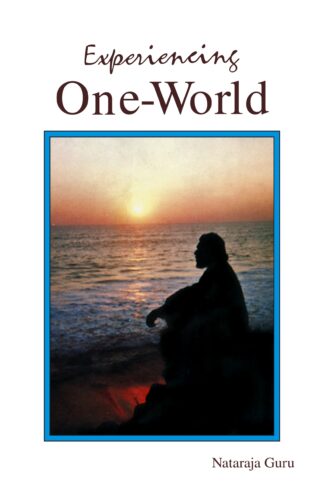
An eminent exponent of Vedantic philosophy here suggests that the one-world dream could become real if Man learnt to cultivate the unitive vision a one-world consciousness that would tune Man to look towards world fraternity.
Is One World a Utopian ideal? Or just a dream in a world which today, more than ever before, stays riven by parochial, deep-rooted barriers : nationalistic, ethnic, religious, linguistic and many other, leave alone a whole diversity of divisive isms? An eminent exponent of Vedantic philosophy here examines this question afresh to suggest that the one-world dream could become a reality, if Man only learnt to cultivate the unitive vision. Essentially a vital part of Nataraja Gurus globally wide educational programme, Experiencing One-World seeks to evolve one-world consciousness that tunes Man to look beyond the trees to stars, to turn on his mind to world fraternity, and to discern the language of audiovisual arts and the charm of poetry as, for instance, is manifest in the world of architecture and music. Spelling out Nataraja Gurus view of One-World that embraces his long-contemplated perspectives on one-world government, one-world economics, world education, one religion, unified sciences and a language of unified sciences, the book highlights the specialties of well-groomed unitive consciousness of a world citizen, who wishes not only to restructure the existing scheme of things, but also to see mankind live a better life and with dignity.

The 100 inspiring quotes on Faith and Trust address different facets of our relationship within and with external elements. When Trust moves up to a higher helm, an individual transcends apparent limits, discovering new and awesome strengths. Each quote is attuned to a stimulating painting of Lord Ganesha, the Lord of Peace, Prosperity and Wisdom.
Through 100 inspiring quotes on Faith and Trust, the authors address one’s relationship within and with external elements. Each quote is attuned to a stimulating painting of Lord Ganesha, the Lord of Peace, Prosperity and Wisdom. Many wise men and women have worked on this wonderful concept of relationship and brought forth a number of thought-provoking and enlightening quotes for one to relish. The authors have supplemented these great personalities with their own creations.
Relationships cannot take place and sustain without Faith and Trust, be it between individuals, families, friends, organizations, societies, or nations. In simple words, it is the willingness of one party to rely on the actions of another. It is the foundation of all one does in his/her life. Trust self first, then others. From trust emanates team spirit and the capability of delegating responsibilities and powers. When it moves up to a higher helm, an individual transcends apparent limits, discovering new and awesome strengths that one was previously unaware of.
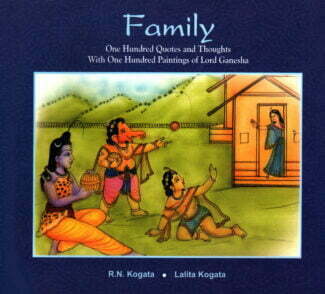
This collection of 100 quotations on home, hearth and good family management with thematic paintings presents the near and dear ones as a colourful bouquet of fragrant fragile flowers, interwoven intricately but inter-dependent for love, care, respect and inspiration for leading a happy, successful and productive life with smoother, stronger family ties
This collection of 100 quotations on home, hearth and good family management with thematic paintings presents the near and dear ones as a colourful bouquet of fragrant fragile flowers, interwoven intricately but inter-dependent for love, care, respect and inspiration for leading a happy, successful and productive life with smoother, stronger family ties

The book containing spiritual and literary discourses of Sufi Shaikh Nizamuddin Awliya focuses on values that can create a true human being. It provides information on many Sufi saints and the ulama.
Fawaid al-Fuad is a monumental work of spiritual and literary discourses of Shaikh Nizamuddin Awliya who lived in medieval India. The book is a didactic classic in the form of recorded conversations. Devoid of supernatural elements, it provides useful information about a large number of Shufi saints and ulama. A living testimony to the accord between the Shariah and Tariqah, therein he spoke on the necessity of practising values that could transform man into a true human being, full of love, tolerance, forgiveness, patience, forbearance, sincerity in devotion, adherence to truth and generosity. Sufism or Islamic spiritualism that flourished in India with the advent of the Turkish rule in the 13th century forms the backdrop of this work. The moral teachings of his spiritual mentors, dwelt at length, in various majlises, constitute the bed-rock of this treatise which has great literary distinction. Written in fluent Persian prose style, it is embellished with apt verses to elucidate the points of discussion. The Shufi way of life and the teachings of the Chishtiyah order have been vindicated as a sharp contrast to the material prosperity, territorial conquest and the lust for power in the contemporary world. The compiler Amir Hasan Ala sijzi a great scholar of Persian language, has done a yeomans service in giving a definite shape to this monumental work. The Shaikhs didactic intention and spiritual flavour have been well-preserved through the compilers directness of style. Fawaid al-Fuad rendered into English from the original Persian text based on an ably edited edition of the book represents a serious attempt to understand the nuances of the mystic mind of a great shufi saint of the sub-continent. This academic venture of Prof. Faruqi will be of great use to lay readers as well as the scholars of Islamic mysticism.
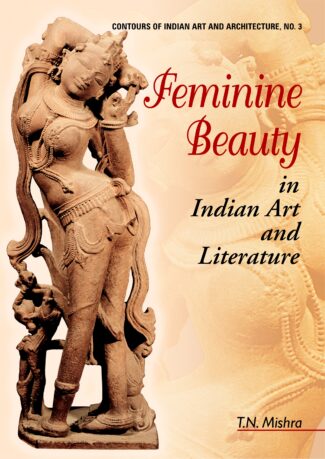
The book is a study of Indian art, iconography and sculptures representing devotion, love, human moods and sentiments, especially in its depiction of female sculptures on ancient temples covering famous temple of Khajuraho, Bhubaneswar, Pura, Konark, Nagda, Belur, Halebid, Ajanta and Ambarnath of various dynasties.
The book is a study of Indian art representing devotion, love, human moods and sentiments, especially in its depiction of female sculptures on ancient temples. It begins with a discussion on Indian art as synthesis of the sublime in nature and the human physical form that conveys the sublime. With numerous illustrations of art, iconography and sculptures from different regions of India, it examines a breath-taking variety of female forms of divinities, celestial nymphs and others symbolising youth, beauty and sensuousness. Referring to features of art of different periods under various dynasties, like the Gupta art, it focuses on representation of female forms and couples particularly erotic realisations in art, i.e. nude figures and mithuna scenes. It studies the figures carved on various materials and in different styles, highlighting the salient features of each one of them. The influence of religious traditions, as Tantrism, on the art depicted is painstakingly traced. Giving examples from famous temples of Khajuràho, Bhubaneswar, Purã, Koõàrk, Nàgdà, Belår, Haëebid, Ajantà and Ambarnàth, the work examines expressions, postures and attitudes of figures to show that they reflect physical bliss, emotional and psychological expressions, and the spiritual state. The book will be useful for scholars of art and art historians in particular who are keen on understanding the aesthetics of Indian art.
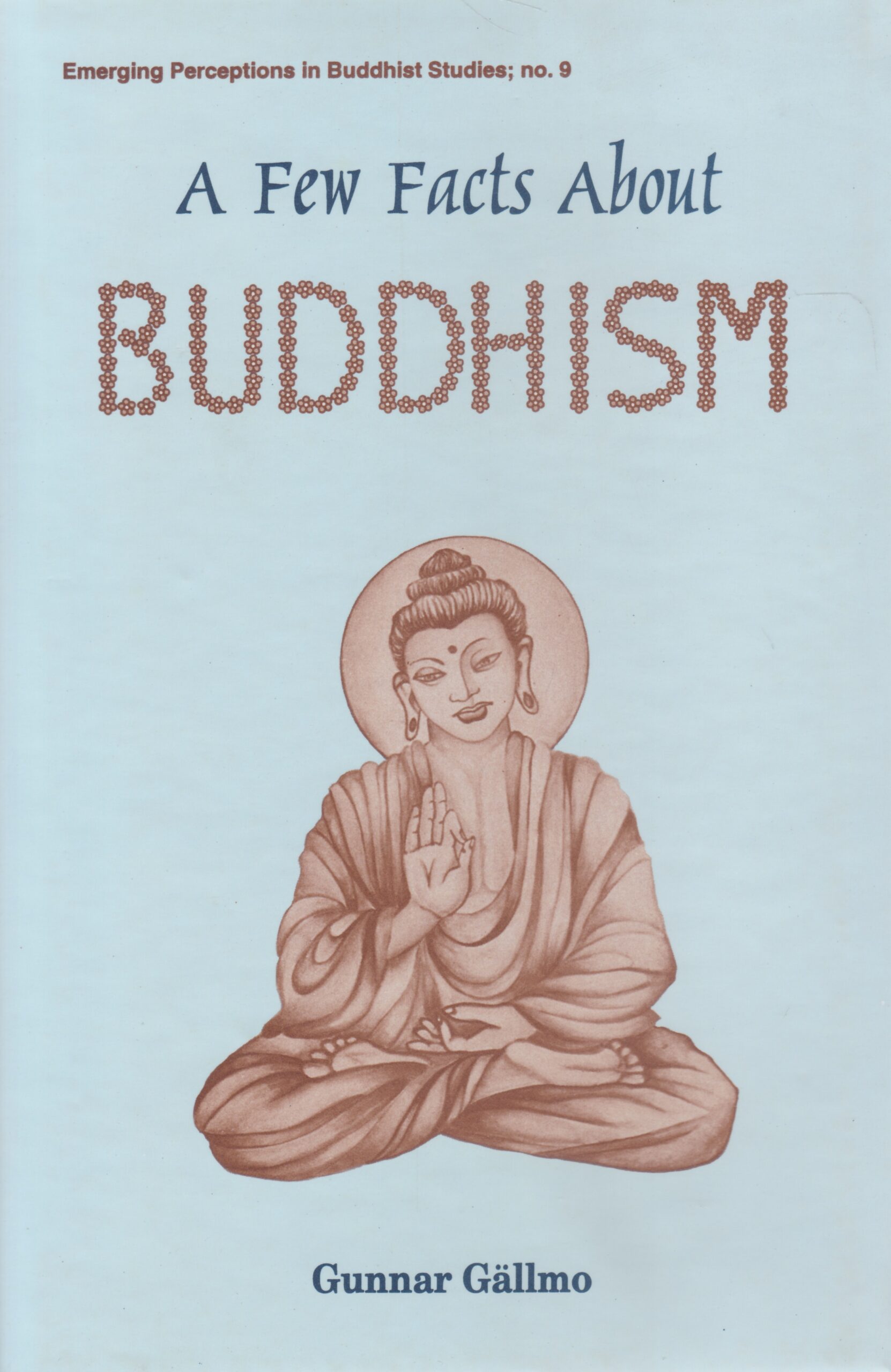
Marshalling facts from the oldest preserved texts, this work studies the Teacher (the Buddha), the Teaching (Dhamma) and the Taught (Samgha) throughout Buddhisms history. It makes a comparative study of Buddhas original teachings and later Buddhist traditions.
Today, when political ideologies/ isms are crashing down and when, at the other end, the great monotheistic religions are trying to survive by turning their backs on logical thinking and intellectual consistency, it might be worthwhile taking a look at the alternatives that by-pass the lopsided views of both materialism and idealism the alternatives that do not have to explain how an omnipotent and all-benvolent God can permit evil, nor how human barbarism can persist doggedly in a progressing world society. And among these alternatives, Gunnar Gallmo rediscovers the oldest existing world religion: the first historically documented case of international (or perhaps non-national) thinking, a teaching that may, more or less, directly or indirectly, positively or negatively, have influenced all later religious, philosophical and political teachings: Buddhism. From the vast corpus of the oldest preserved texts, Gunnar Gallmo marshals facts around Buddhism quintessentially, authentically. His book is a well-knit, at once compelling presentation of the Teacher (the Buddha), the Teaching (Dhamma/Dharma), and the Taught (the Samgha/the Community) throughout the 2500-year-long history of Buddhism: first in India, then in Asia and, finally, today in the world. And since Buddhism is a religion with an actual historical personage as its founder, the author tries to explore how the Enlightened Masters original teaching underwent a change in later tradition, and how the differences between the two have cropped up. With a glossary of Pali/Sanskrit terms and highly significant bibliographic references, this treasury of facts about Buddhism is bound to fascinate scholars and general readers alike.
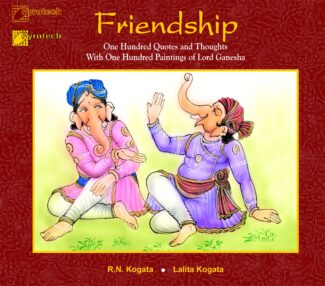
True friendship in a cohesive force and its virtues are many. It not only brings the people closer and knits the society into a caring unit but also stimulates trust beyond the boundaries. This in what the quotes contained in this work with objective art justify for illuminating minds towards unification of the mankind.
True friendship in a cohesive force and its virtues are many. It not only brings the people closer and knits the society into a caring unit but also stimulates trust beyond the boundaries. This in what the quotes contained in this work with objective art justify for illuminating minds towards unification of the mankind.
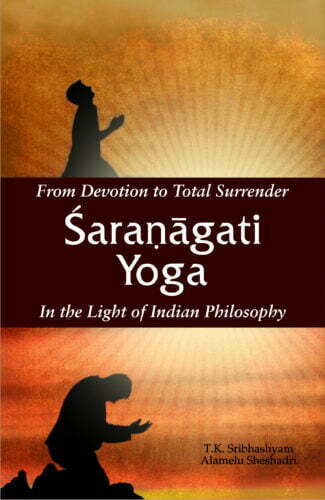
The book is an in-depth study of the origin of bhakti as expounded in ancient scriptures including the Vedas. While the emphasis is on RÀmÀnujas understanding of the Absolute, it explores the bhakti devotion in aivism and throws ample light on mans need for devotion without religious convictions.
The volume is a comprehensive work on bhakti yoga or bhakti marga, seen as the direct path to perfection, the principal means to the progressive perfection of the soul.
The book begins with a detailed study of the origin of bhakti in the Vedas and its understanding in the Brahmanas, Aranyakas, the Upanishads and the Puranas, and other works. It attempts to approach bhakti as a representation of God in the created world and devotion without religious convictions. It throws light on man’s need to develop such devotion through absolute self-surrender to God. The bhakti concept in Vedanta is explored in-depth by referring to Vedanta schools of Adi Shankara, Bhaskara Bhatta, Ramanuja, Caitanya Mahaprabhu, the Alvar Saints of south India and the concept of devotion of Andal. Quoting from the thoughts of diverse bhakti saints of India, it explores the bhakti devotion in Shaivism referring to Shiva as the Supreme God and the concept of Shakti, aspects relating to moral responsibilities, bondage and liberation, and the doctrine of Shatstha. The emphasis is on Ramanujas teachings on bhakti: his understanding of the Absolute, jnana and consciousness, jiva and atma, time and spiritual consciousness. There is a chapter that provides a practical approach to bhakti thought, for instance, ways of developing consciousness of it and non-meditative forms of bhakti.

The book is an in-depth study of the origin of bhakti as expounded in ancient scriptures including the Vedas. While the emphasis is on RÀmÀnujas understanding of the Absolute, it explores the bhakti devotion in aivism and throws ample light on mans need for devotion without religious convictions.
The volume is a comprehensive work on bhakti yoga or bhakti marga, seen as the direct path to perfection, the principal means to the progressive perfection of the soul.
The book begins with a detailed study of the origin of bhakti in the Vedas and its understanding in the Brahmanas, Aranyakas, the Upanishads and the Puranas, and other works. It attempts to approach bhakti as a representation of God in the created world and devotion without religious convictions. It throws light on man’s need to develop such devotion through absolute self-surrender to God. The bhakti concept in Vedanta is explored in-depth by referring to Vedanta schools of Adi Shankara, Bhaskara Bhatta, Ramanuja, Caitanya Mahaprabhu, the Alvar Saints of south India and the concept of devotion of Andal. Quoting from the thoughts of diverse bhakti saints of India, it explores the bhakti devotion in Shaivism referring to Shiva as the Supreme God and the concept of Shakti, aspects relating to moral responsibilities, bondage and liberation, and the doctrine of Shatstha. The emphasis is on Ramanujas teachings on bhakti: his understanding of the Absolute, jnana and consciousness, jiva and atma, time and spiritual consciousness. There is a chapter that provides a practical approach to bhakti thought, for instance, ways of developing consciousness of it and non-meditative forms of bhakti.
| There are no products |